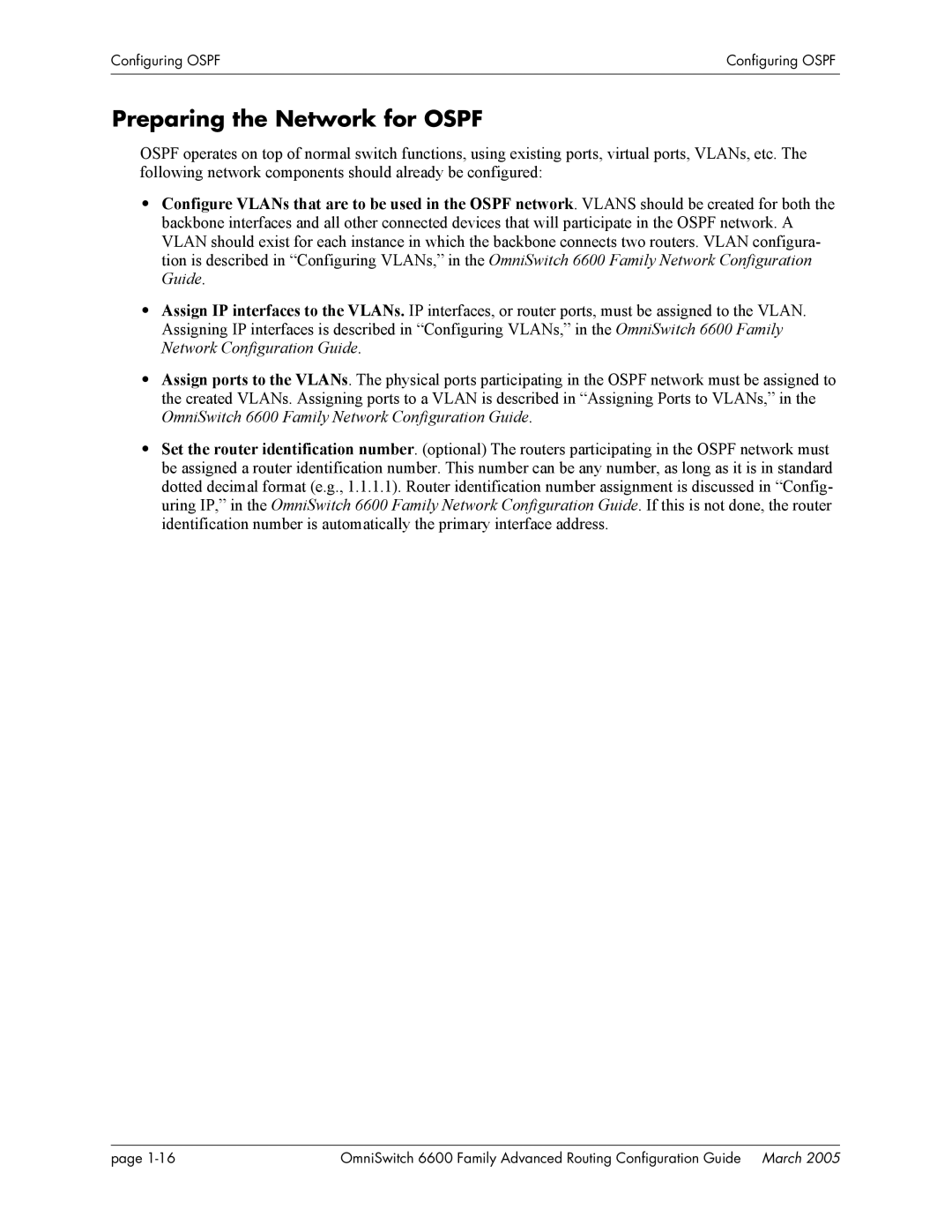Configuring OSPF | Configuring OSPF |
|
|
|
|
Preparing the Network for OSPF
OSPF operates on top of normal switch functions, using existing ports, virtual ports, VLANs, etc. The following network components should already be configured:
•Configure VLANs that are to be used in the OSPF network. VLANS should be created for both the backbone interfaces and all other connected devices that will participate in the OSPF network. A VLAN should exist for each instance in which the backbone connects two routers. VLAN configura- tion is described in “Configuring VLANs,” in the OmniSwitch 6600 Family Network Configuration Guide.
•Assign IP interfaces to the VLANs. IP interfaces, or router ports, must be assigned to the VLAN. Assigning IP interfaces is described in “Configuring VLANs,” in the OmniSwitch 6600 Family Network Configuration Guide.
•Assign ports to the VLANs. The physical ports participating in the OSPF network must be assigned to the created VLANs. Assigning ports to a VLAN is described in “Assigning Ports to VLANs,” in the OmniSwitch 6600 Family Network Configuration Guide.
•Set the router identification number. (optional) The routers participating in the OSPF network must be assigned a router identification number. This number can be any number, as long as it is in standard dotted decimal format (e.g., 1.1.1.1). Router identification number assignment is discussed in “Config- uring IP,” in the OmniSwitch 6600 Family Network Configuration Guide. If this is not done, the router identification number is automatically the primary interface address.
page | OmniSwitch 6600 Family Advanced Routing Configuration Guide March 2005 |
